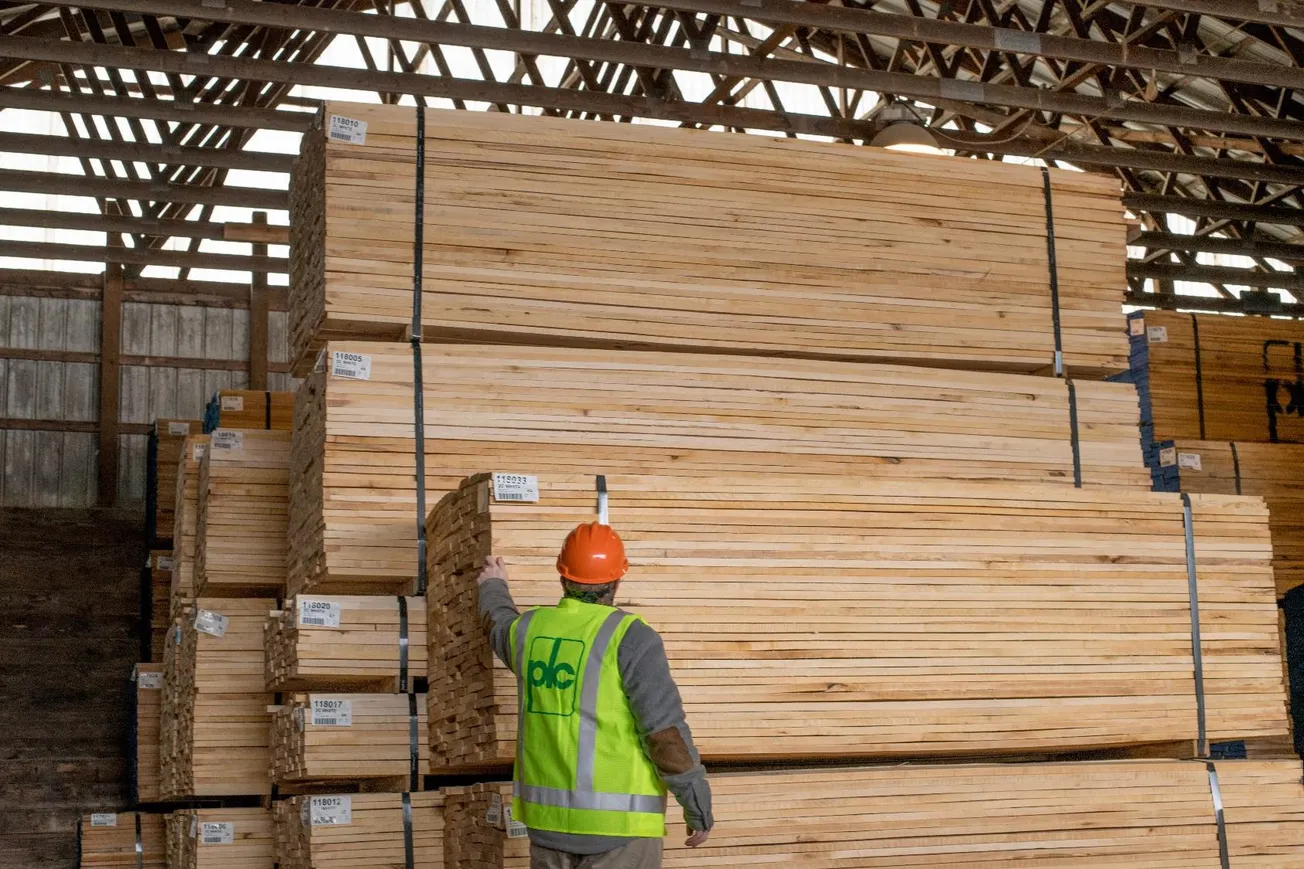Table of Contents
A Special Series from North American Wholesale Lumber Association
At industry events and NAWLA regional meetings, I’m one of the youngest people in the room and one of the very few young women. On the trade-show floor, I’ve had attendees approach to ask, “Do you really work for Roseburg?” and “Does your father work in the industry?”
These questions aren’t mean-spirited; rather, they stem from genuine curiosity and express a small amount of surprise and excitement to find me, a Millennial woman, doing a job that some may call decidedly un-Millennial.
You may have read articles on social media sites or seen the stereotypes in television and film. The archetypal Millennial is lazy, entitled, and intent on breaking trail and doing things their own way. They want extra compensation for entry-level work; they want to work from home; and, of course, they want their participation trophies. They befuddle bosses, confound their older coworkers, and complicate hiring managers’ jobs.
Name the stereotype, and someone has voiced it—not just about Millennials, but also about those who came before them. Each generation finds a variation of these flaws within the young people of the time; the only difference now is the use of the Internet to propagate these perceptions.
Subsequently, young people sometimes enter workplaces that have unrealistic or unfair expectations of them. Putting employees in a box, regardless of their age, only limits their potential to help the company grow and innovate.
As an aging industry, wood products stands to reap considerable benefits by cultivating the energy and ingenuity of its youngest members. And with Millennials expected to comprise three-quarters of the overall workforce by 2025, it’s a wheel that’s already been set in motion.
Misconceptions
A common perception of Millennials is that they lack ambition and they don’t want to settle down and buy a house. This could be chalked up to a lack of personal drive, or it could be wariness due to years of poor economic conditions. However, doesn’t every generation struggle to balance opportunity with safety, and growth with stability? Within the workplace, most people across generations have similar goals and aspirations, with the differences lying in how those objectives are realized.
For example, the belief that Millennials are tethered to their phones may ring true, but it’s this same fluency in technology that allows us to keep pace with the innovation necessary to do our jobs. Technology is rapidly evolving, and savvy workers of any generation will be well-suited to adapt to changes in technology and their environment at large. Like every generation entering the workforce, we bring a new set of eyes to old problems. Combining the fresh perspective of rookie workers with the practical experience and knowledge of tenured employees, an intergenerational workplace can both perfect outdated processes and pass on best practices to the next generation.
In order to be part of the solution, however, Millennials must do their part to step up as well. It can be difficult to feel like an equal when you work with people your parent’s age.
Likewise, it may be challenging for colleagues to take you seriously when you remind them of their child. To establish themselves and gain credibility with coworkers, young people first have to earn that credibility. Commitment and follow-through should be practiced by every employee, but Millennials in particular must learn to embody dependability if they want respect. Coming prepared to work each day and doing what you say you’re going to do is the most important step in building trust. If you do your job well, you’ll make your colleagues’ jobs easier and make yourself invaluable.
Problem Solving
However, even uniquely talented Millennials can present a level of risk to some companies. It’s no secret that we’re known as the job-hopping generation. According to a 2016 Gallup poll, 60% of employed Millennials are open to new job opportunities, compared with 45% of non-Millennials. For many businesses, this indicates that a significant portion of their young workforce doesn’t envision a future with them.
This doesn’t have to be the case. Most Millennials still crave job security and financial stability, so an uncertain future or lack of upward mobility in their current position may drive them to seek greener pastures elsewhere. From day one at Roseburg, my path forward was clear, and having a vision of the opportunities ahead gave me goals to work toward. Outlining a new employee’s potential trajectory with the company and providing resources to help them succeed shows young people that their position won’t just be another job—it can blossom into a fruitful career.
Companies can invest in the long-term success of Millennial employees by encouraging their personal and professional growth. Attending industry events and NAWLA meetings is a fantastic way to help Millennials feel more invested in their company and the wood products industry as a whole. Veteran employees can introduce newer coworkers to peers and friends within the industry at these events, forging relationships that help support a long and rewarding career.
Coming Together
Many generational stereotypes stem from expectations that one generation should act exactly the same as its predecessors despite being influenced by vastly different environments. However, Millennials, Generation X, and Baby Boomers were dealt different sets of cards—none of us will play the same hand at the same time. Still, we’re drawing from the same deck, and we share more than we think we do.
The idea that everyone in a generation acts the same as their peers is not the most useful way to conceptualize the workforce. There are some blanket differences between generations, but I find these distinctions pale in comparison to the stark similarities they share. Maybe Millennials don’t really want to pay for cable or have a landline, but on the macro scale, our desires match those of Gen Xers and the Baby Boomers. We want the opportunity for growth, job security, and a reasonable work-life balance.
Regardless of generation, people want to work under great management in careers that challenge and reward them. We want to see our companies and our industry grow and flourish, and we want to be part of the solution.
– Devin Stuart is marketing product manager for Roseburg Forest Products, Springfield, Or. (www.roseburg.com), and a member of NAWLA’s Marketing Committee.









